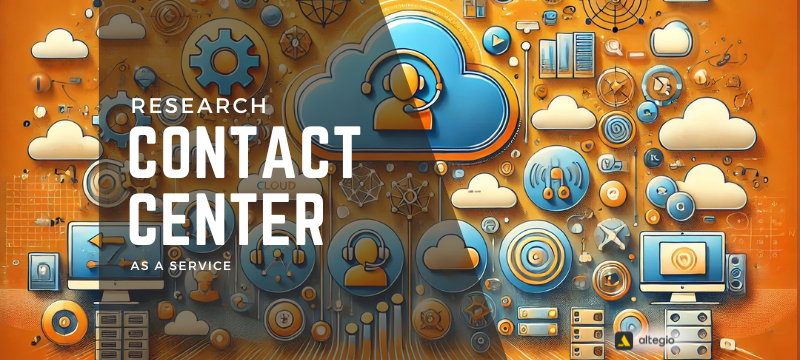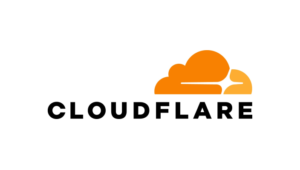In this article, we’ll explore the essential features that distinguish various CCaaS (Contact Center as a Service) solutions, highlighting what businesses need to stay efficient in 2024 and beyond.
What is CCaaS?
CCaaS, or Contact Center as a Service, delivers traditional call center capabilities via the cloud, eliminating the need for physical infrastructure. This setup supports remote work and simplifies software management, enhancing operational flexibility and scalability.
Core CCaaS Features
Cloud Deployment
All CCaaS solutions are cloud-based, but prioritize providers utilizing multiple cloud infrastructures (e.g., Google Cloud, AWS, Azure) for enhanced redundancy and flexibility.
Basic Call Routing & Queuing
Look for solutions offering robust routing options beyond basic skills-based and time-based routing. Consider features like omnichannel routing, real-time analytics, and integrations with CRMs to personalize customer journeys and optimize call distribution.
Agent Management
Ensure the solution provides comprehensive agent management capabilities beyond basic presence tracking. This includes real-time performance monitoring, customized reporting, and coaching tools to optimize agent productivity, identify training needs, and improve overall contact center efficiency.
Basic Reporting
While all solutions offer basic reporting on call volume, duration, and agent activity, prioritize those providing customizable dashboards and in-depth analytical capabilities. This allows you to gain deeper insights into contact center performance, identify trends, and make data-driven decisions.
Advanced CCaaS Capabilities
Scalability
The degree of scalability can vary significantly. Factors include:
- Cloud Infrastructure: Robust infrastructure with global reach, high availability zones, and auto-scaling capabilities is crucial.
- API-First Approach: A comprehensive API enables seamless integration with other systems, supporting complex workflows and customization as you scale.
Scalability allows businesses to adjust contact center operations in response to changing demands without significant downtime or additional costs.
Global Telecom Coverage
A one-stop-shop for both contact center software and communication needs streamlines deployment and simplifies vendor management. Consider the provider’s global reach and phone number availability in your target markets.
Call Routing Capabilities
Go beyond basic ACD and IVR with features like:
- Omnichannel Routing: Routes interactions from any channel (voice, chat, email, social media) to the right agent.
- Real-time Analytics & Adjustments: Provides supervisors with live data to monitor queue performance and dynamically adjust routing strategies.
- Computer Telephony Integration (CTI): Links phone systems to CRM and other tools for a unified view of customer data.
- NLP-Powered IVR: Allows callers to interact using natural language for self-service or reaching the right department.
- Personalized IVR Experiences: Customizes greetings and menu options based on caller ID, past interactions, or account information.
- Proactive Outreach: Triggers outbound calls or messages based on IVR interactions.
Integration with Other Systems
Seamless integration with CRMs and other systems is crucial. Consider:
- Well-Documented API: A clear, comprehensive API is crucial for seamless communication between your CCaaS and other software.
- Off-the-Shelf Connectors: Pre-built integrations for popular CRMs and business tools simplify integration, especially for non-technical users.
- Technical Support: Check if the vendor has a dedicated team for integration support and if they can assist with custom integrations.
Analytics and Reporting
Evaluate the depth and customization of analytics and reporting features:
- Basic Reporting: Metrics like total calls, average handling time, and agent performance.
- Advanced Reporting: Insights across all channels, detailed agent activity breakdowns, and comprehensive customer journey analysis.
Omnichannel Communications
True omnichannel capability seamlessly integrates interactions across voice, email, chat, social media, and more, all within a unified platform.
Updates and Maintenance
Regular updates from providers are crucial for feature enhancements, security patches, and performance improvements without service disruption.
Security
To safeguard sensitive customer data, evaluate:
- Certifications: Specific security certifications like ISO 27001 and PCI DSS.
- Regulatory Compliance: Compliance with industry and regional regulations such as HIPAA and GDPR.
- Data Encryption: Strong encryption methods for data both at rest and in transit.
- Access Controls: Measures like multi-factor authentication and role-based access controls.
- Security Audits and Assessments: Regular security audits and vulnerability assessments.
AI-Powered Features
AI is essential for delivering exceptional customer experiences. Consider:
- Intelligent Call Routing: Direct calls to the most suitable agents based on customer data.
- Chatbots & Virtual Assistants: Automate routine tasks and provide instant support.
- NLU Integration: Seamless integration with NLU services for natural language interactions.
- Built-in Speech APIs: Integrate with speech recognition and synthesis services for enhanced voice interactions.
Automation Capabilities
Look for platforms with user-friendly, visual, no-code interfaces that simplify complex voicebot creation. This capability is beneficial for:
- Businesses without Dedicated IT Resources: Smaller teams can leverage AI without needing coding expertise.
- Agile Development: Visual builders facilitate quick iteration and experimentation with voicebots.
- Empowerment of Business Users: Subject matter experts can contribute directly to bot creation.
Ready to Experience the Future of Customer Service?
If you’re looking for a CCaaS solution, Voximplant might be worth checking out. It’s got a solid feature set, global reach, and can handle a range of industries and contact center needs. Plus, there’s a 14-day free trial if you want to see what it can do.
Також радимо прочитати статтю: Top 10 SaaS services for communication with customers.
А також 6 Best No-Code App Builders for Creators and Coaches in 2024.








